Hey! Welcome back!
Can you believe we’re in December already? I’ve been in Goa for the last 10 days or so, and I hoped to catch up on my posts, but as usual, there’s so much to do here, in my home-state, that I have EVEN MORE to fill you in on!
In case you missed it, check out the highlight of my November – the World Fair Trade Week in New Delhi, where I spent 7 days learning about the fair trade movement.
No, it’s not one of those boring history-economics type of ‘movements.’ It has something to do with how we live every day, the products we use and the clothes we wear. It’s hard to fathom that if everyone made a conscious decision to support poverty-stricken farmers, weavers and artisans rather than already-rich MNCs, the world would be so much richer in terms or art, and fairer, by providing a decent living to everyone.
While the World Fair Trade Conference fed me all the info, it was the Fair Utsav and Fashion Show that drove the point home.
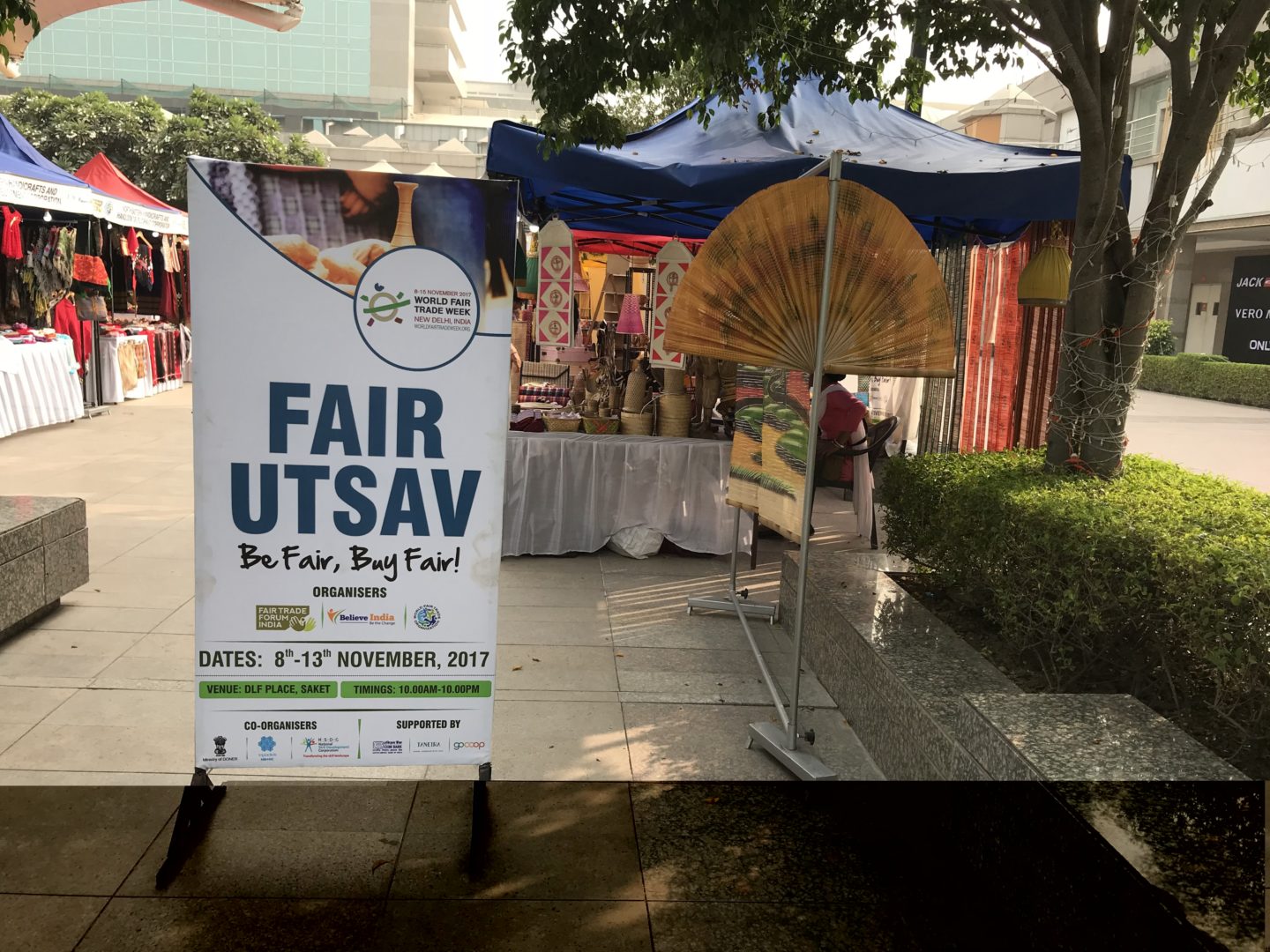
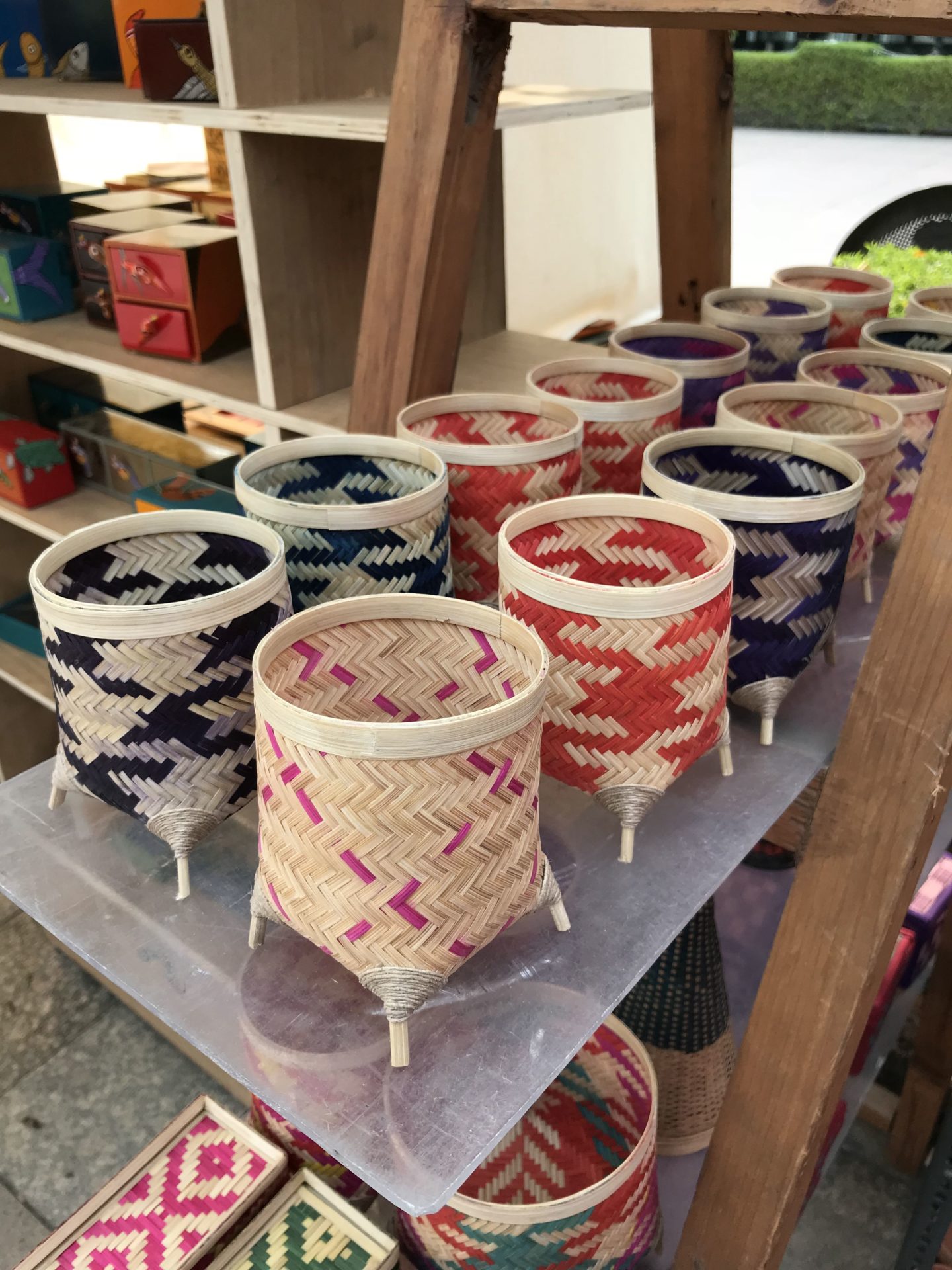
The Fair Utsav was held in the courtyard of DLF Place, a mall in Saket. Over 100 stalls saw craftsmen from around the country sell their wares – accessories, clothes, trinkets, jams, pickles, cloth, shoes, and artifacts made of cane. These items were made by hand through trade secrets passed down from generation to generation and many were symbolic of the area from where these craftsmen came.
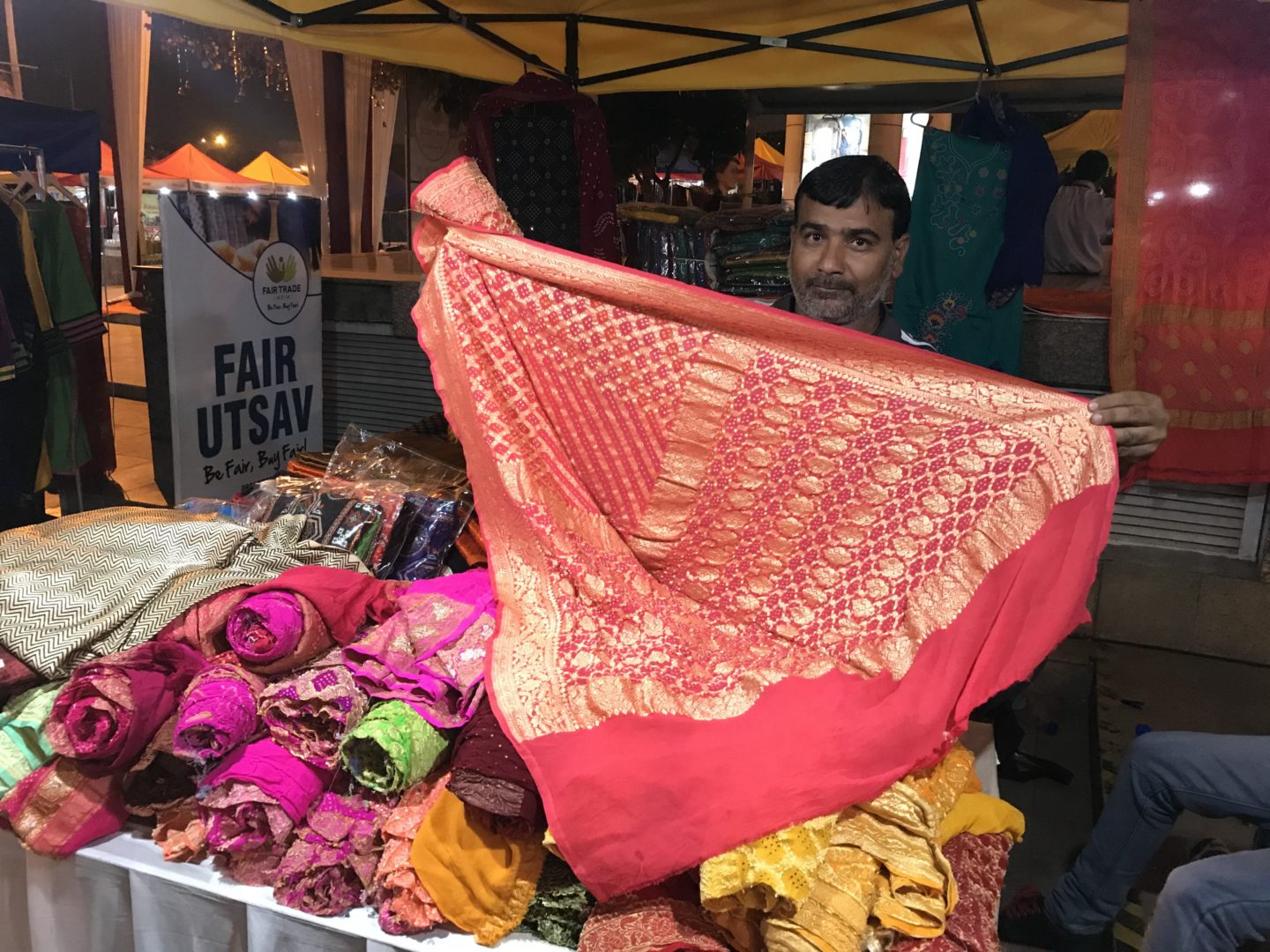
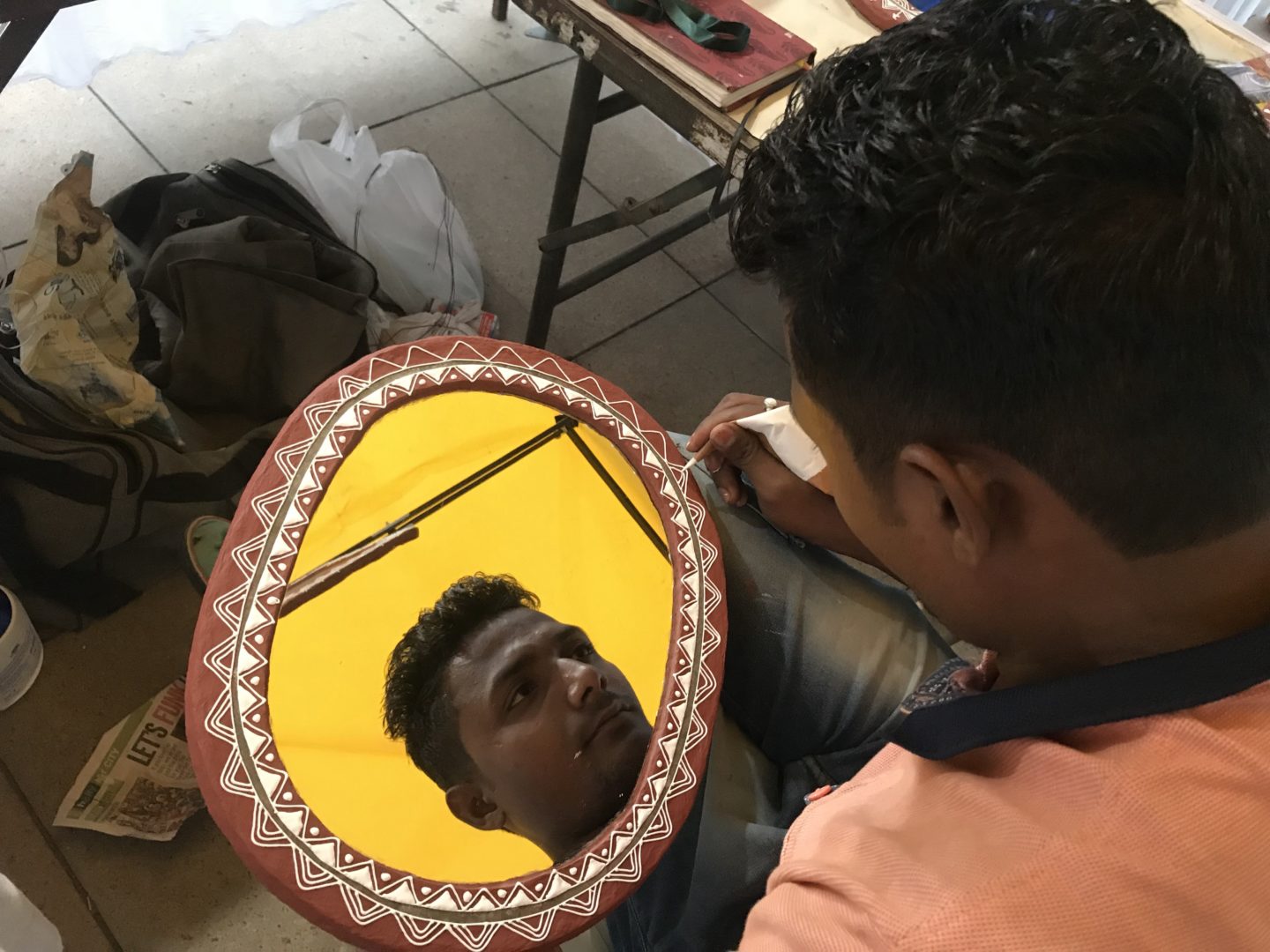
The sheer variety was outstanding and in many cases, you would never have guessed it was handmade at all! The attention to detail and perfection in many items could fool someone into thinking it was bought at a luxury market. And in fact, many ARE sold in luxury markets at quadruple the price, while these artists struggle for their next meal. They don’t have the means or knowledge to open an e-store and as their reach is limited, NGOs step in to help them sell to a wider audience.
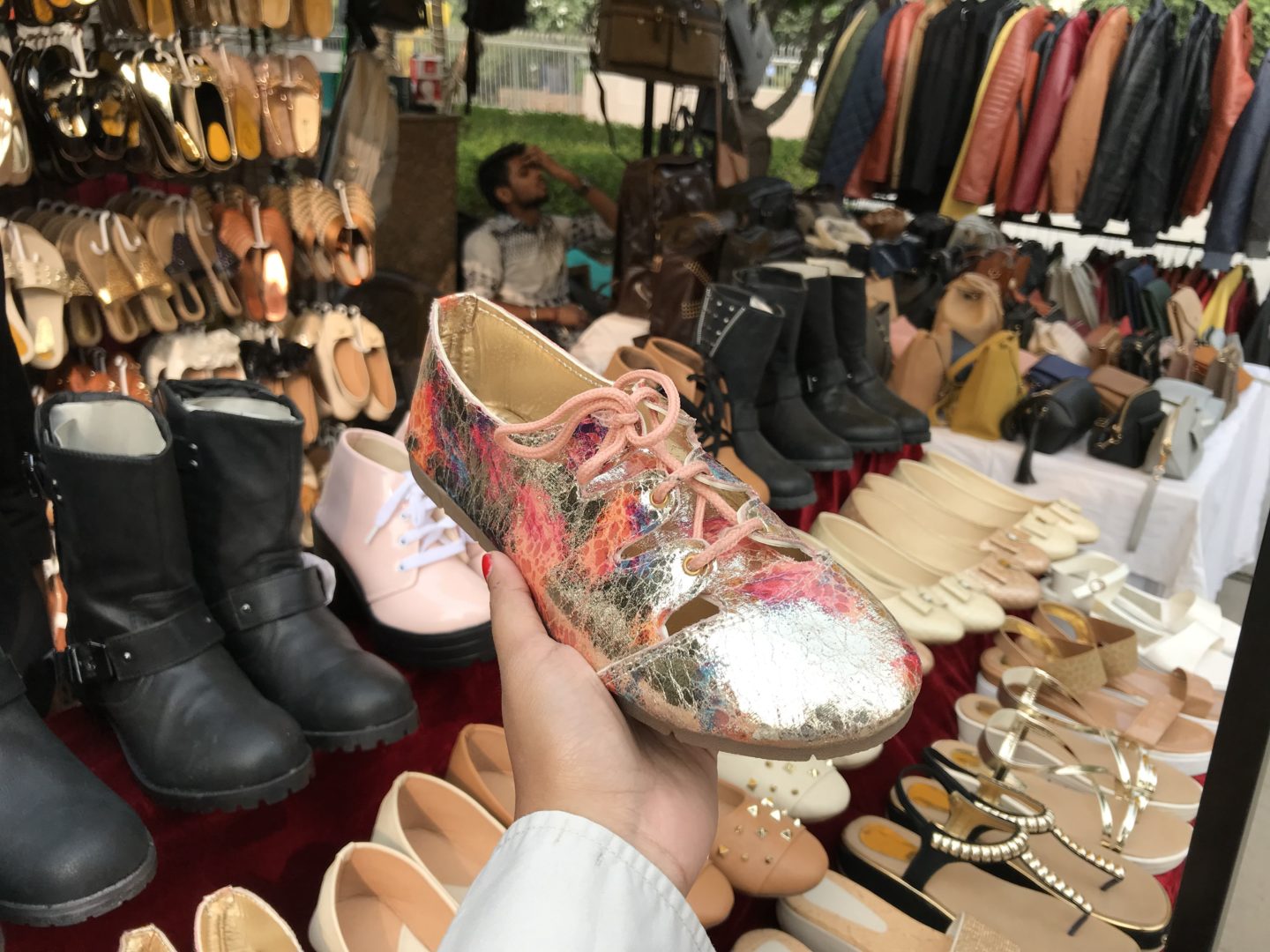
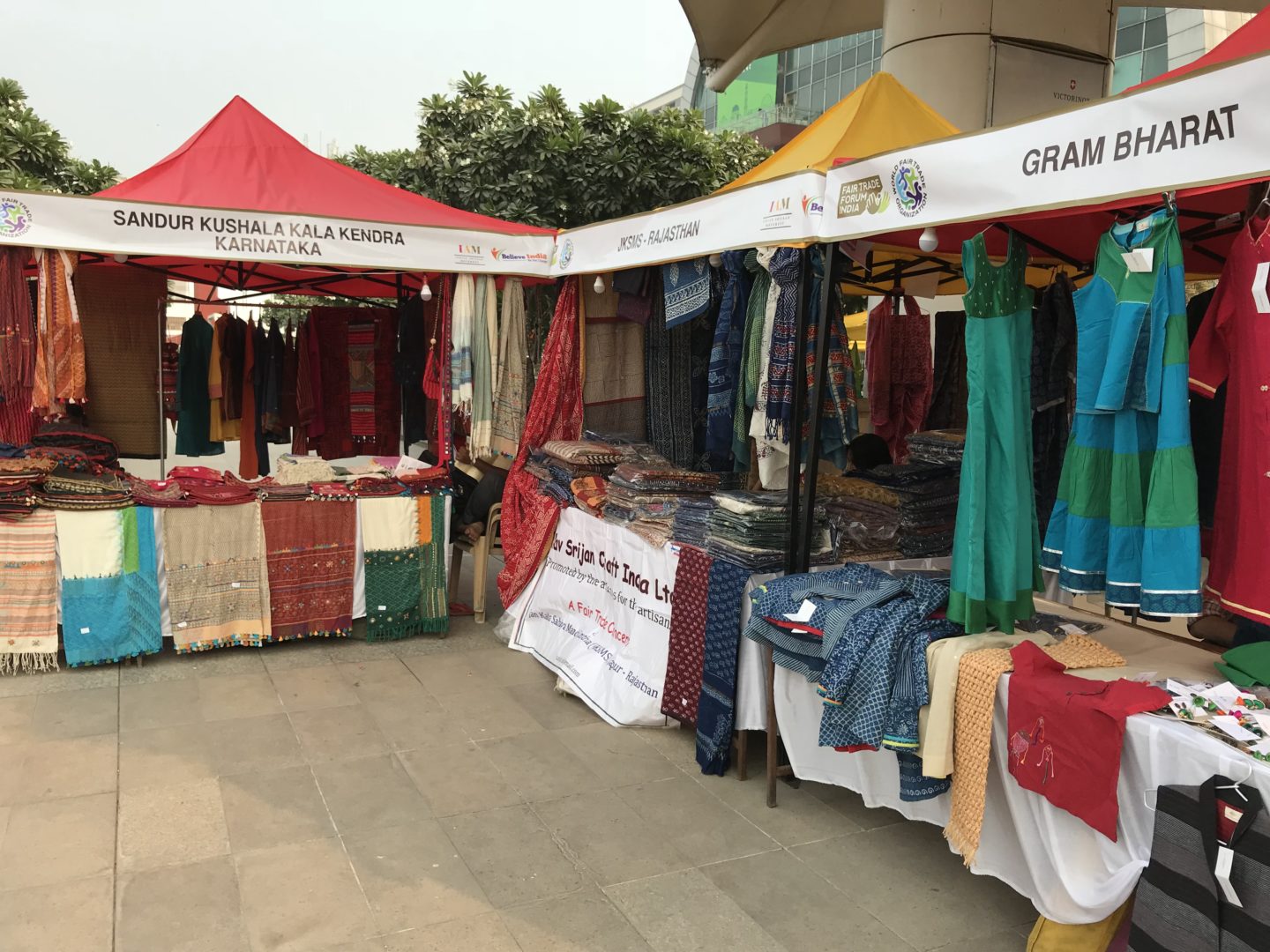
I could think of a dozen friends who’d love bags and accessories like these, and I’m sure you do, too. Sadly, as is our nature and habit, the next time a birthday is around the corner, we’ll all rush to the mall to pick out a gift instead. That’s probably why we need to turn into fair trade consumers – the items are gorgeous and unique, the cause is worth it and all it takes is a little extra effort and will to support local craftsmen by buying local.
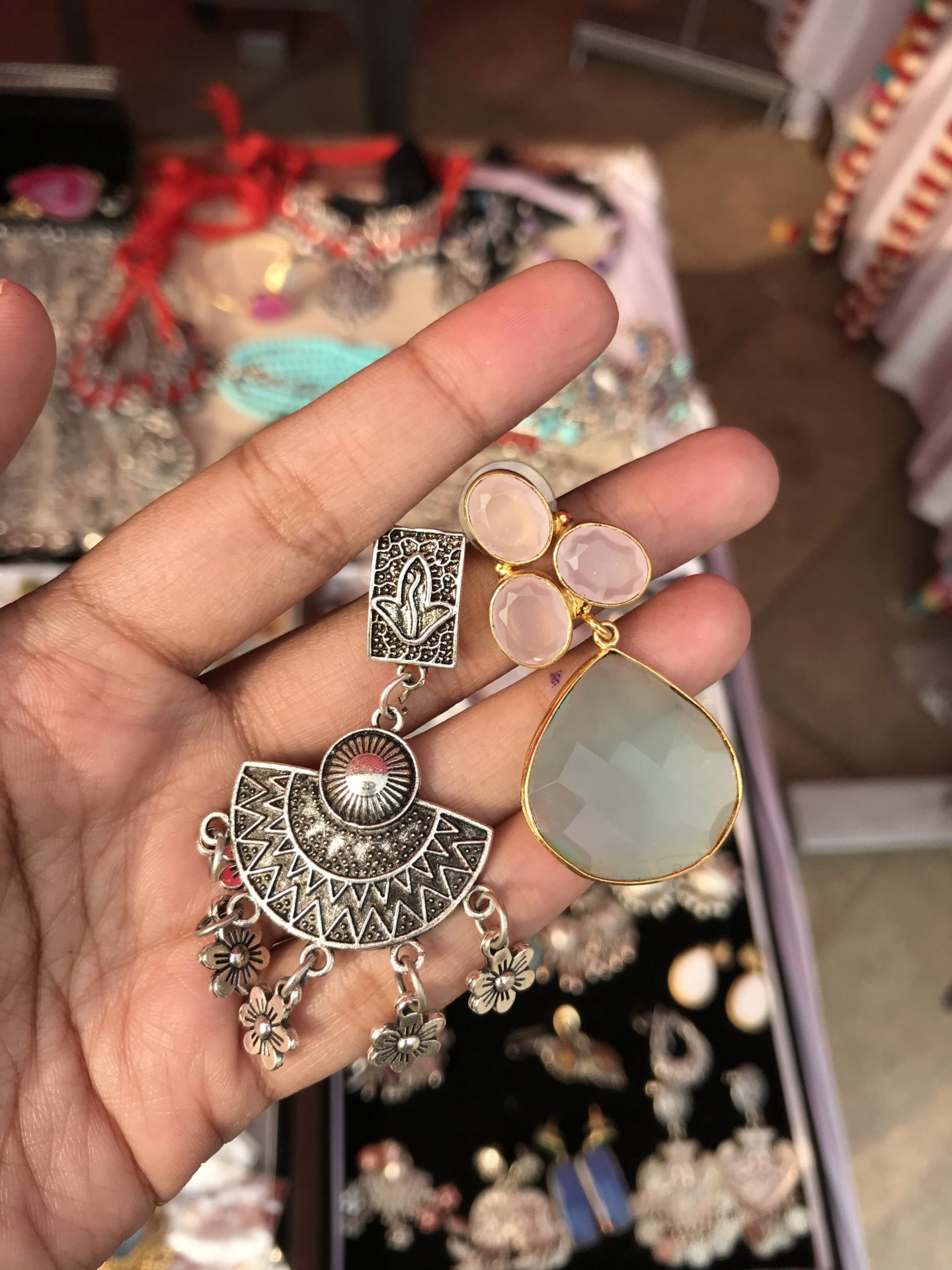
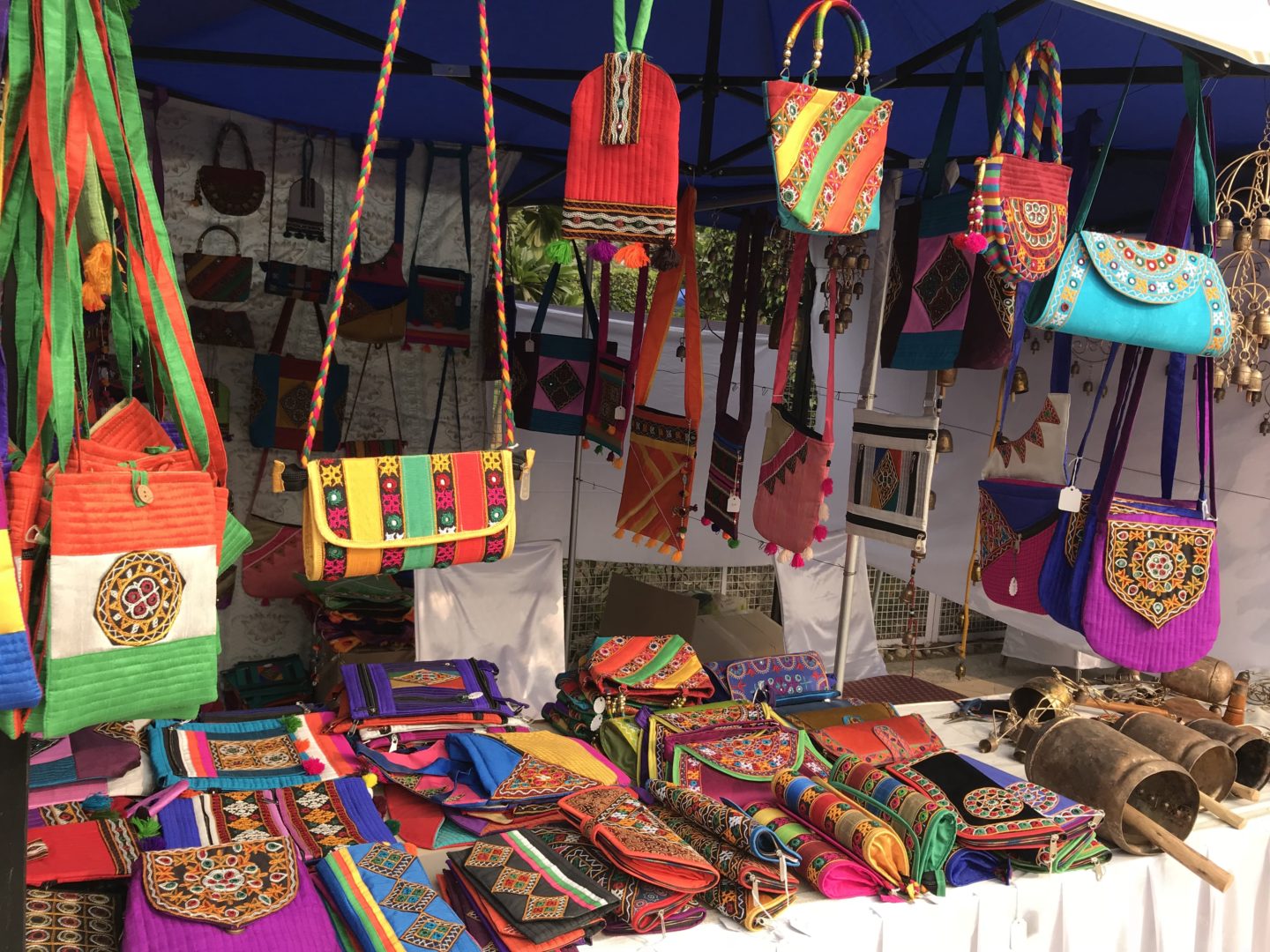
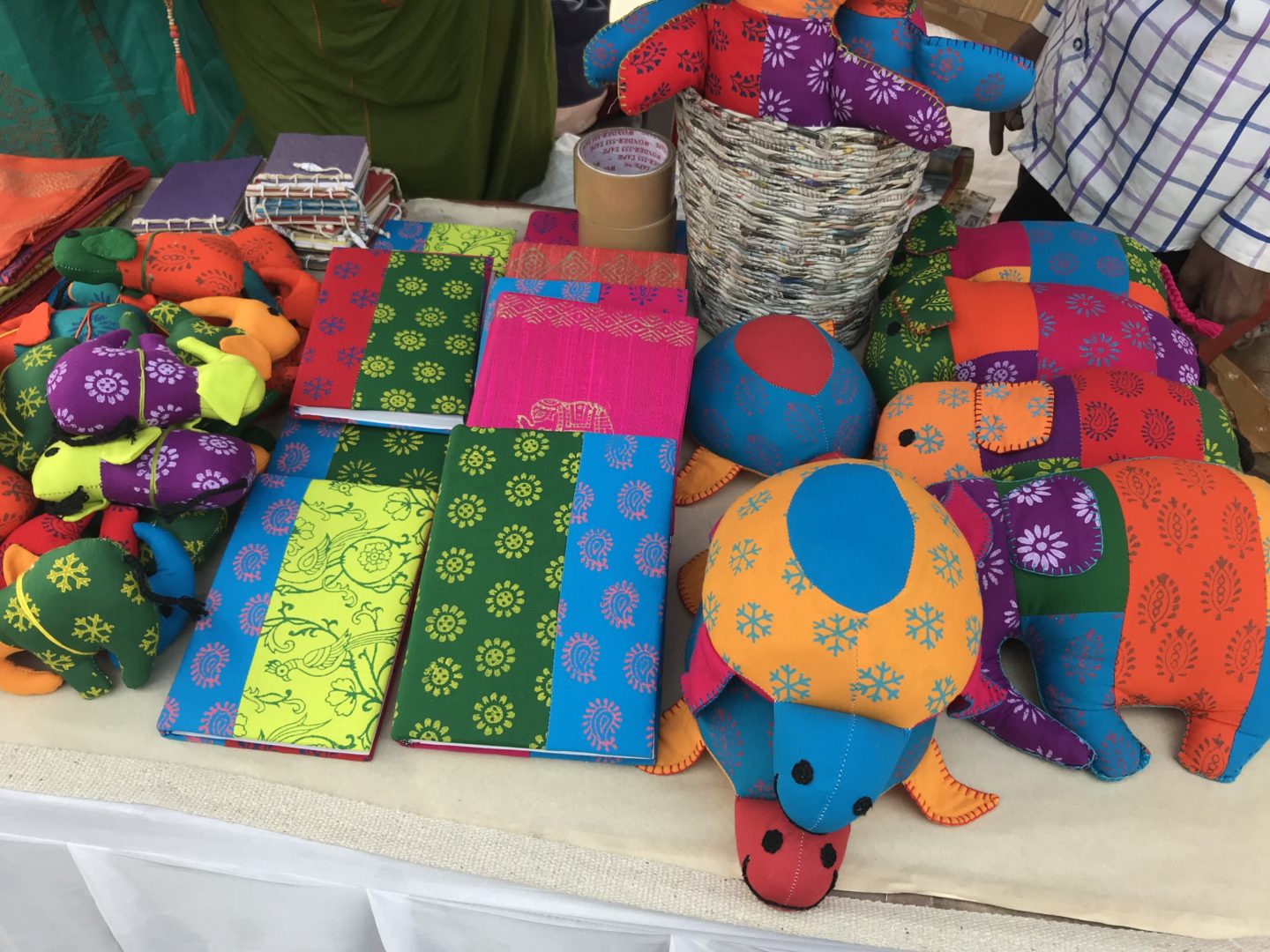
The Fair Trade Fashion show was probably the highlight of the event! I always thought sustainable, fair fashion was restricted to khadi items. You know – those loose dresses and kurtas! I first got a real glimpse into it when I checked out Ninoshka’s workshop. But nothing could have prepared me for all this fair-trade glam! <3
The Fashion show conducted in collaboration with the Ministry of Development of North Eastern Region, North East. It was held at NIFT in Delhi and 7 brands showcased their collections and amazed the crowd with the ingenuity of their designs coupled with social responsibility.
Upasana from Auroville focuses on ‘design for change,’ and the brand showcased its Indigo Collection made using khadi (handspun cloth), organic cotton grown by local farmers and Khadi Jamdani, a traditional weaving technique.
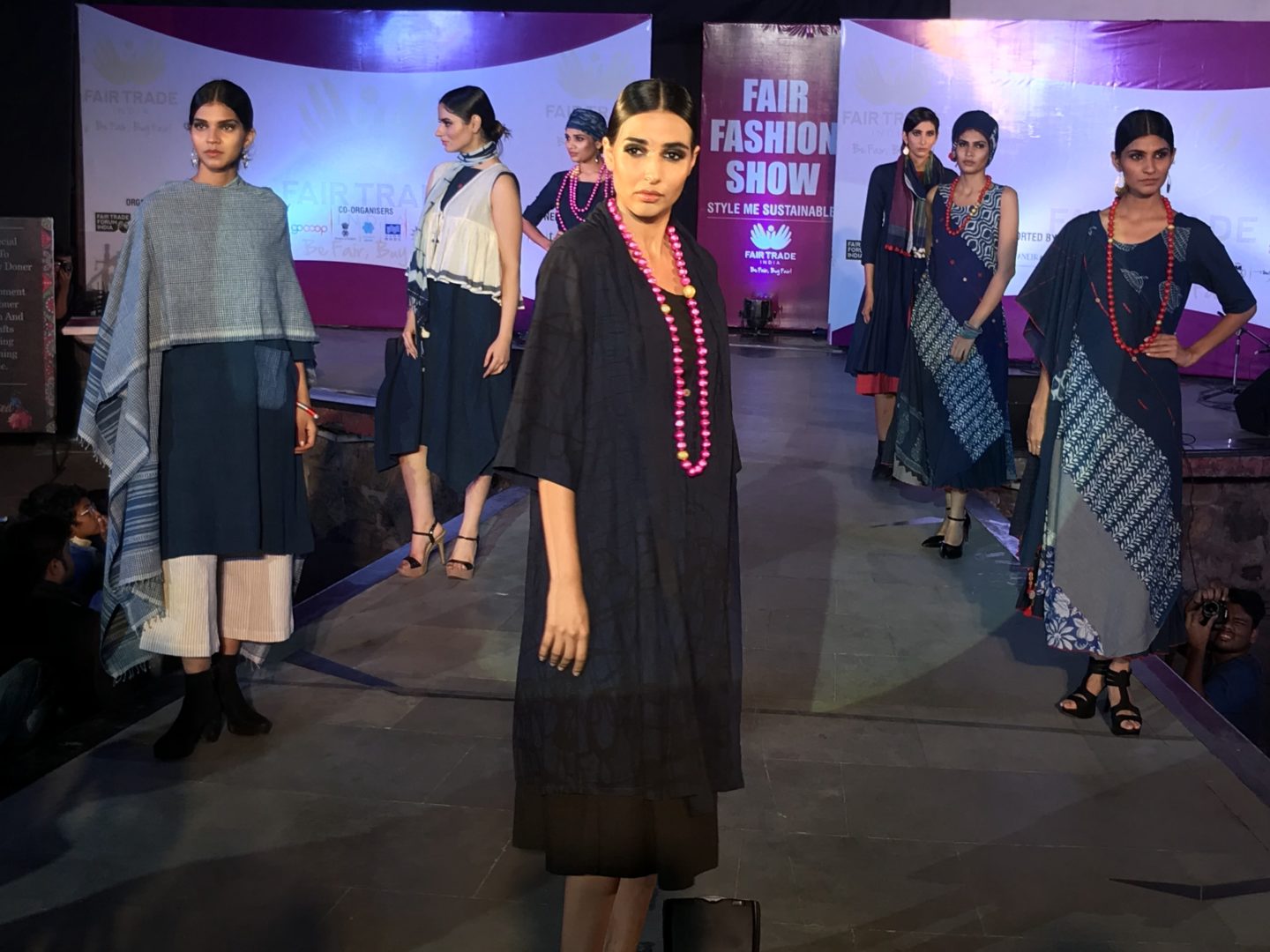
The brand Sasha from Kolkata is engaged with over 5000 artisans, 100 craft enterprises, and 16 craft lines, connecting craftsmen to new audiences. The collection showcased ensembles primarily for women in woven textiles and Kantha embroidery.
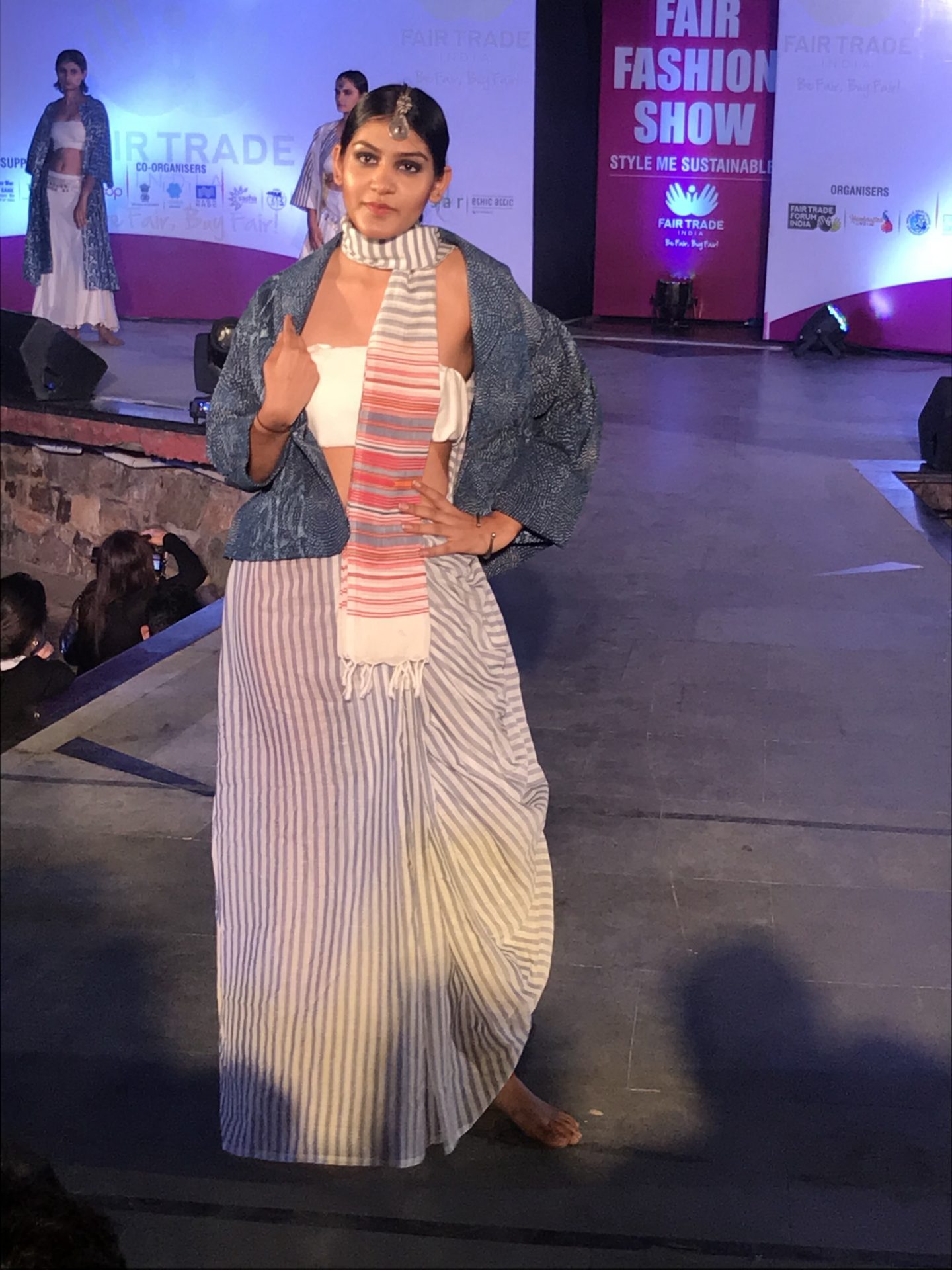
Mahila Umang was next, a collective of women farmer-producer members and is located in Uttarakhand. Through a consolidated network of 1500 members involved in various viable business activities, small, yet significant income is made and every business activity is directly controlled by the producer group. All the garments were hand knitted by the women of Uttarakhand.
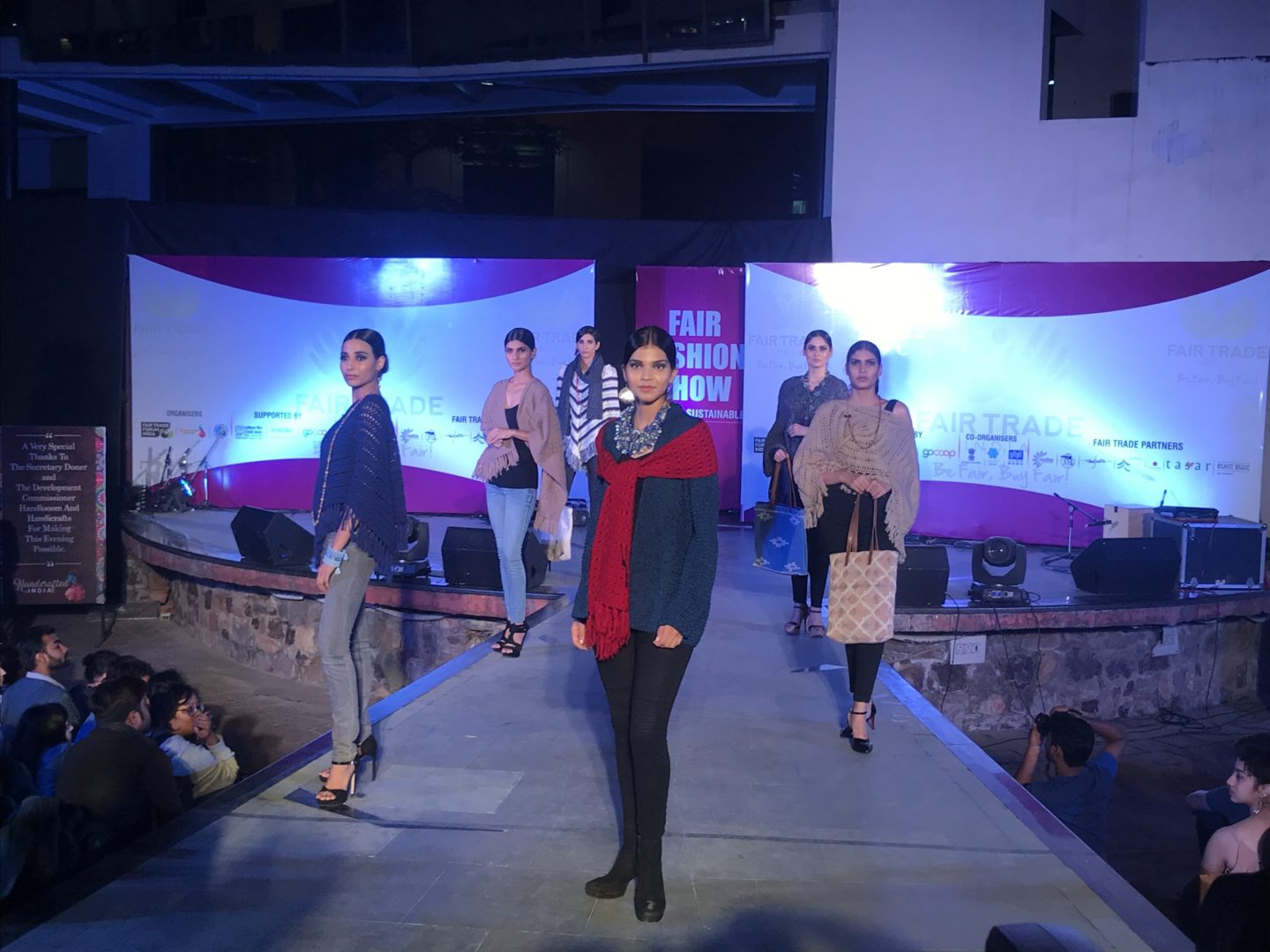
Rangsutra, the next brand is a community owned craft company comprising of artisans from remote regions of India. Rangsutra ensures sustainable livelihoods for farmers and artisans by creating top quality handmade products celebrating India’s rich craft heritage.
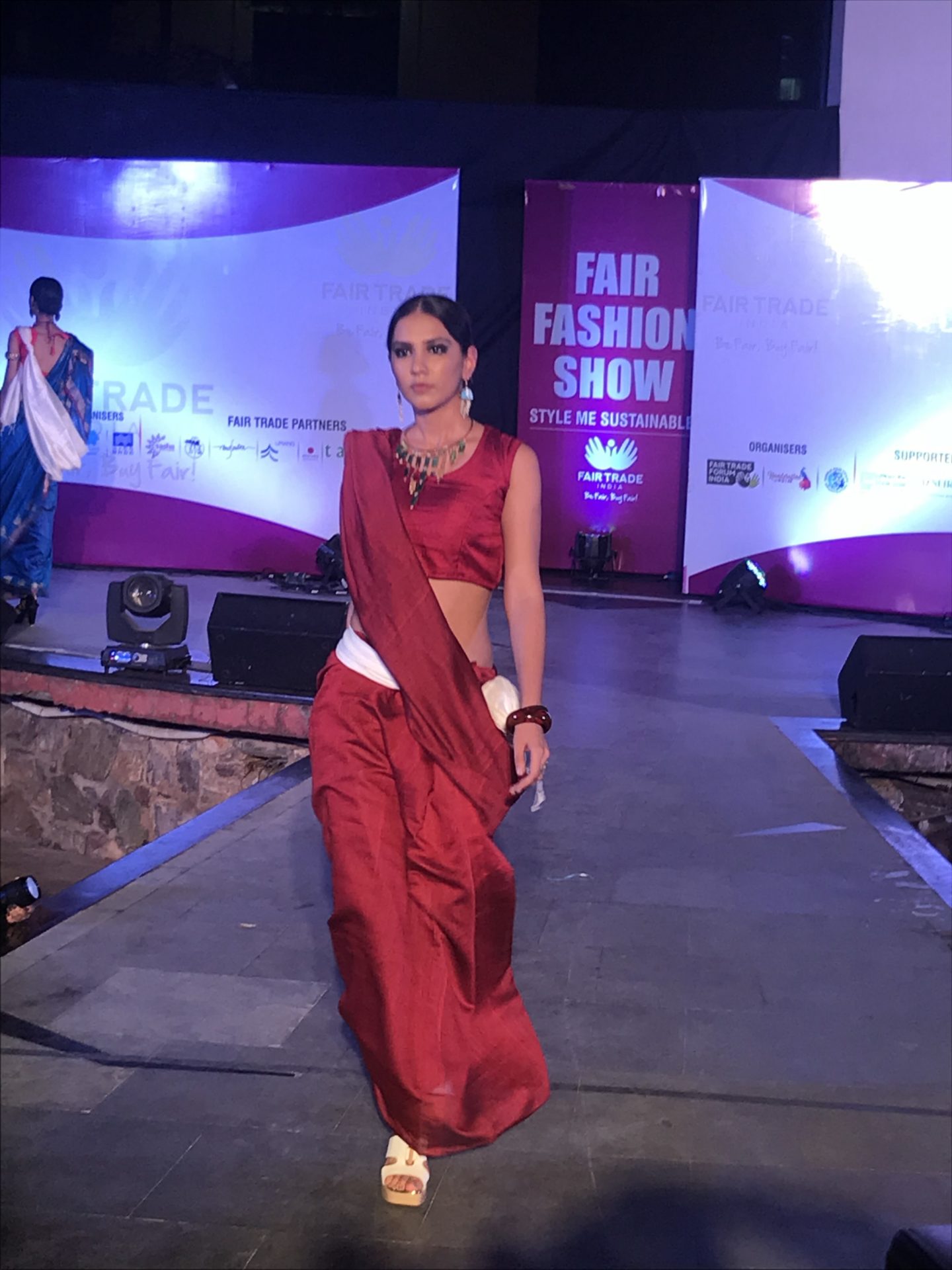
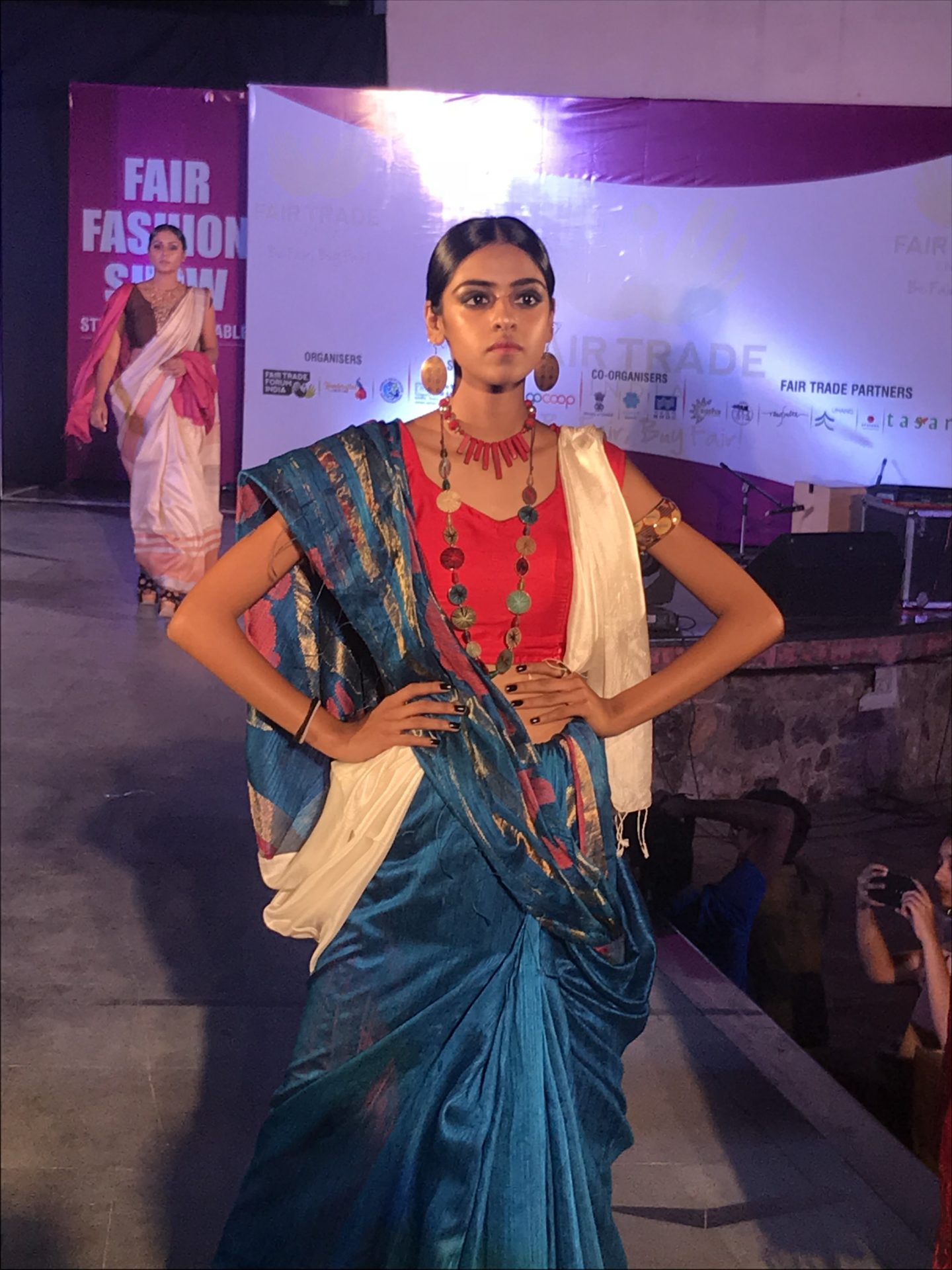
GoCoop, an award winning company for hand loom marketing owns a brand, The Good Loom, the designs of which were also showcased. Like all their collections, this menswear line symbolized a thoughtful approach to retail, the environment and Indian arts and crafts.
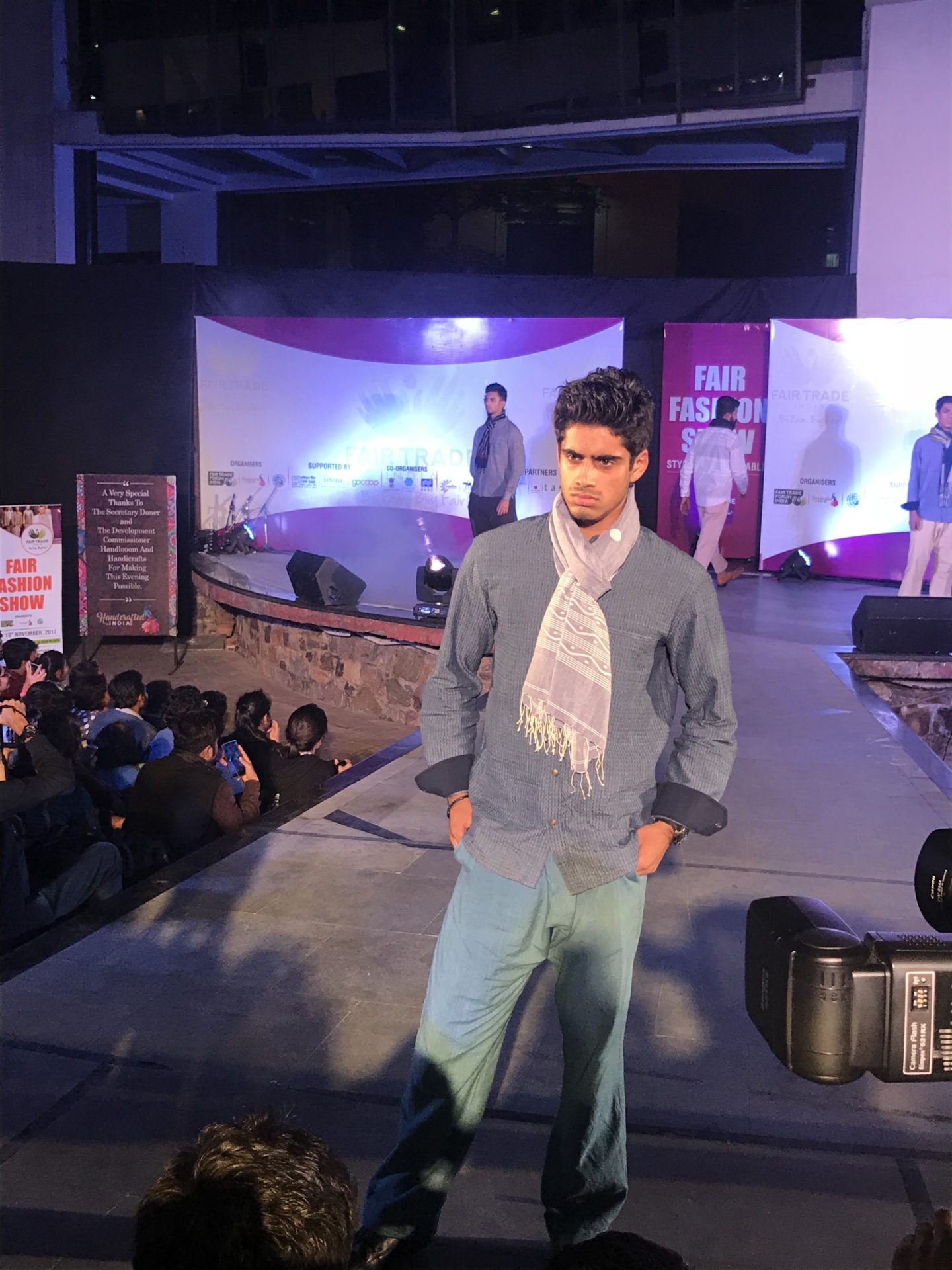
Eco Tasar Silk Pvt Ltd runs a sustainable and commercially competitive textile business to help generate wage opportunity for rural based producers like yarn makers, weavers, dyers etc. Through these activities, small artisans and producers do not need to migrate in search of work.
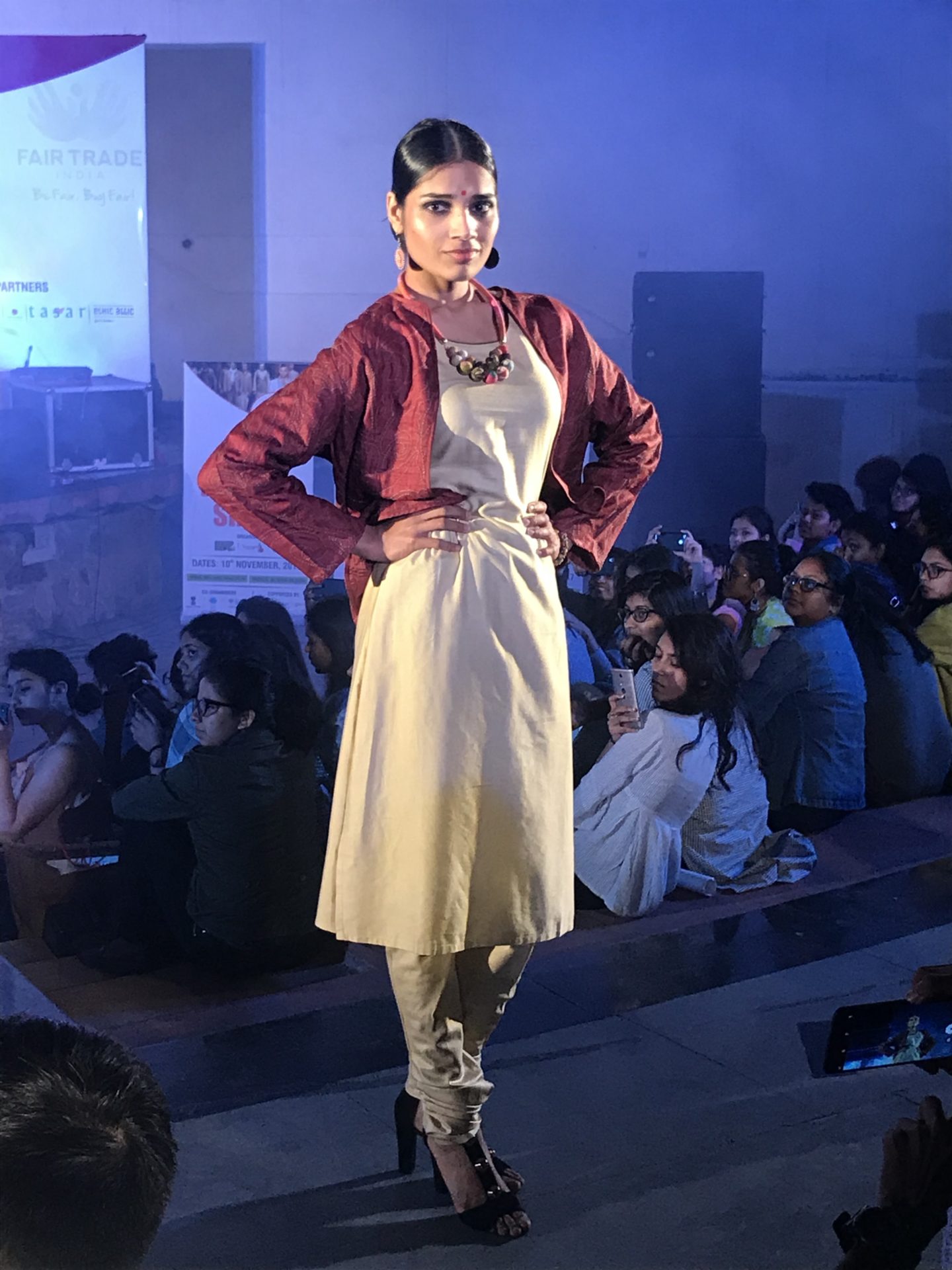
Lastly, the AagorWeavers from Assam showcased a vibrant collection and even had a weaver walk the ramp, much to the delight of the audience.
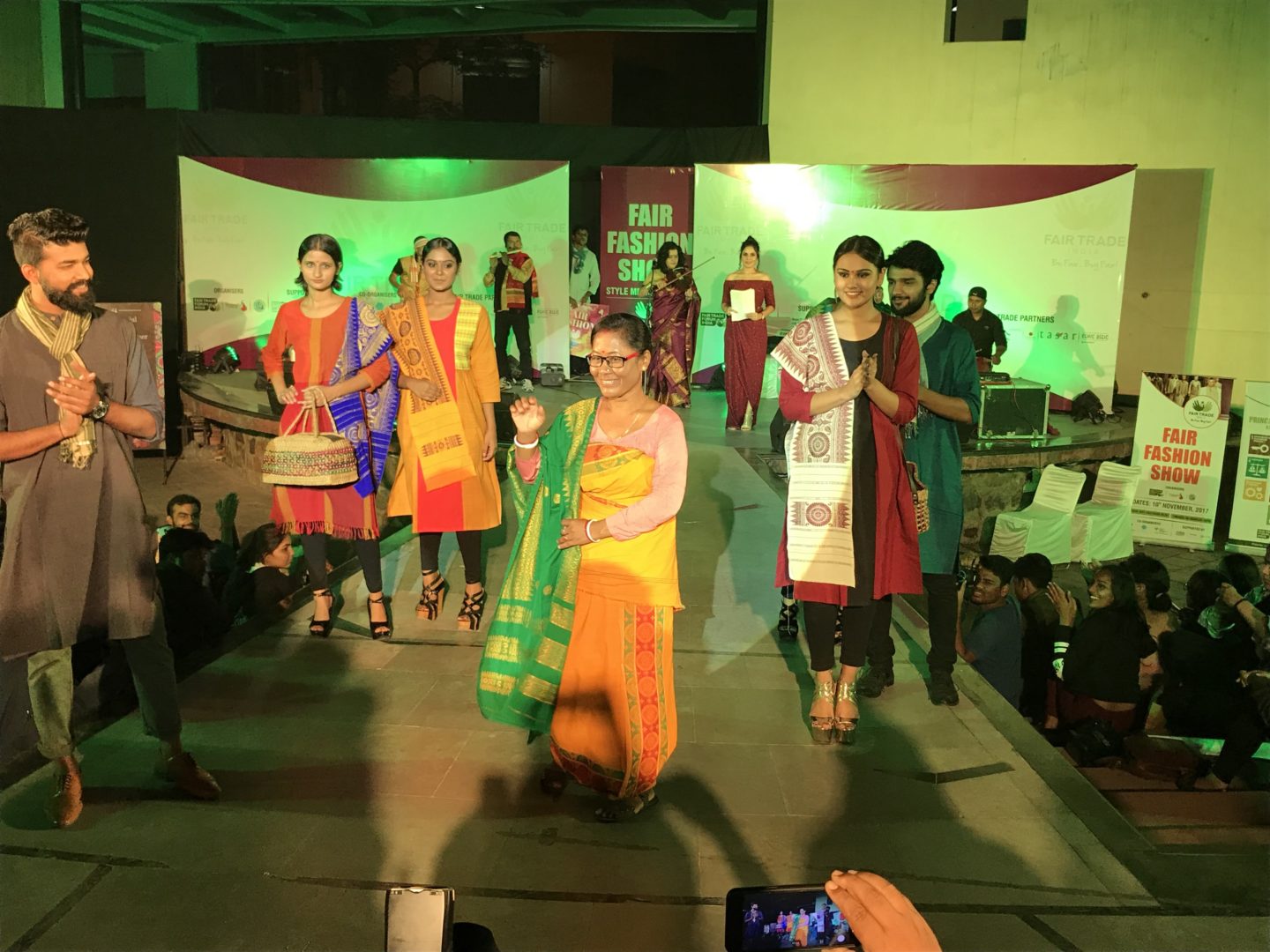
I’d also like to give a special mention to the brand Ethic Attic by Fairkonnect, who help their clients source ethically produced, sustainable and Fair trade products. All the ambassadors and hosts were presented with an Ethic Attic stole during the course of the conference.
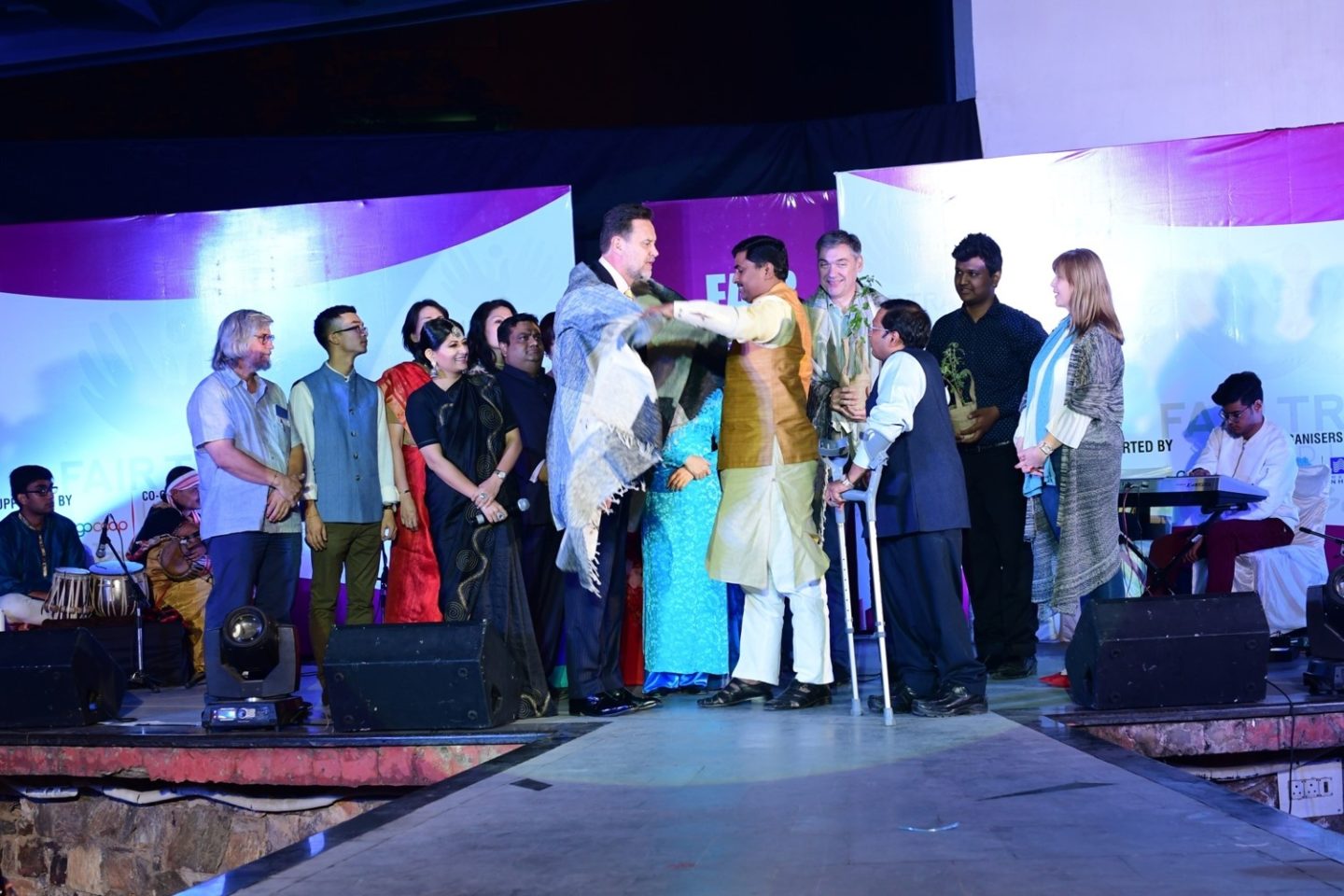
Models walked the ramp to the mesmerizing voice of Sunita Bhuyan, a leading violinist and singer who blew the crowd away with her breathtaking performance. Finally, the event was brought to a close by Fashion designer Jay Ramrakiani who created some gorgeous designs especially for the occasion. If you love designer lehengas and saris, you would have been in for a treat.
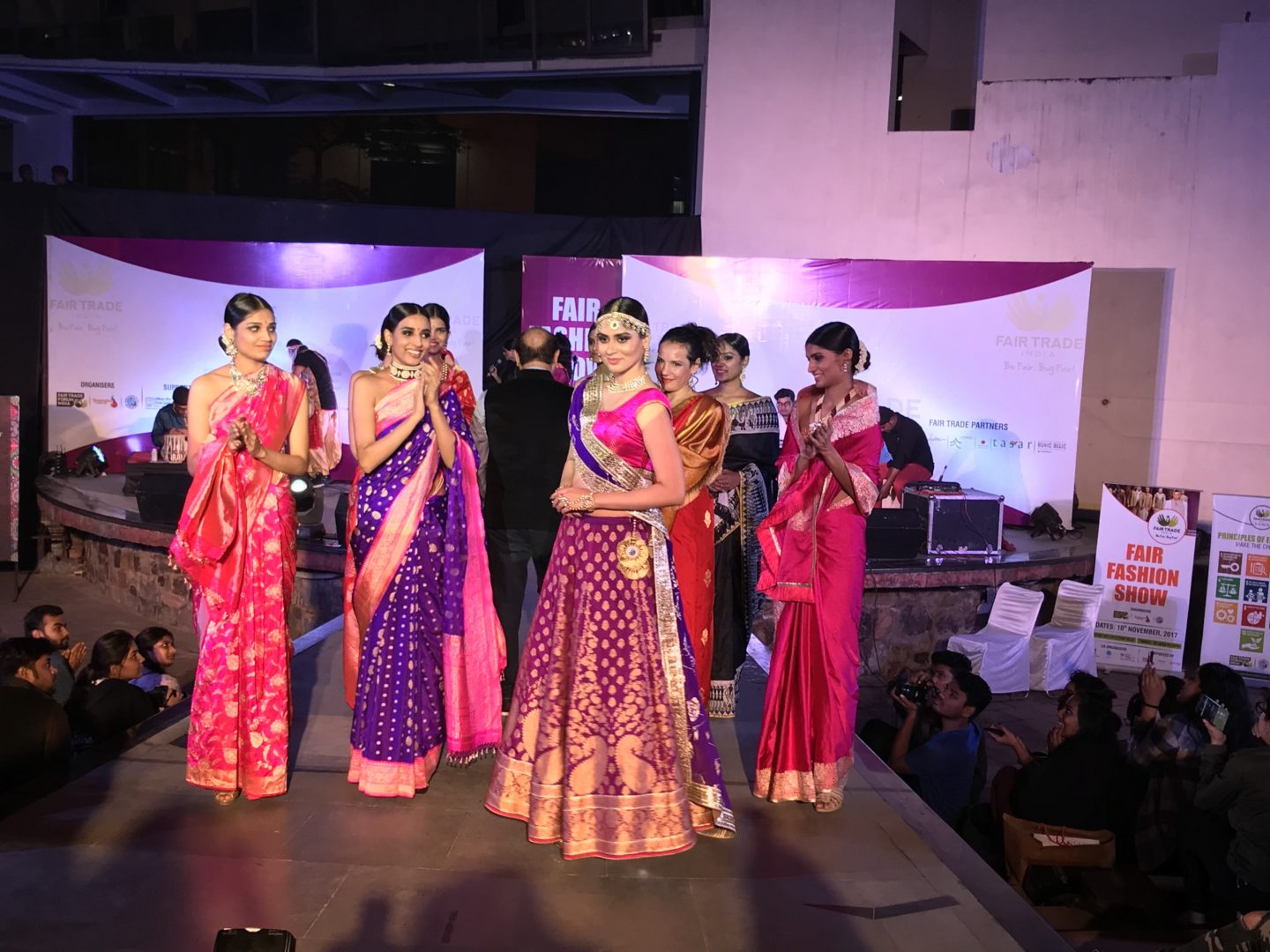
Hope you enjoyed reading about my experience at the World Fair Trade Conference, organized by World Fair Trade Organization and Fair Trade Forum – India. Do try and visit one of these exhibitions and buy fair trade products when you can. We’re in dire need of protecting age old crafts in this age of technology, and a little support goes a long way.
Next up, all the adventures here in Goa! See you soon!
